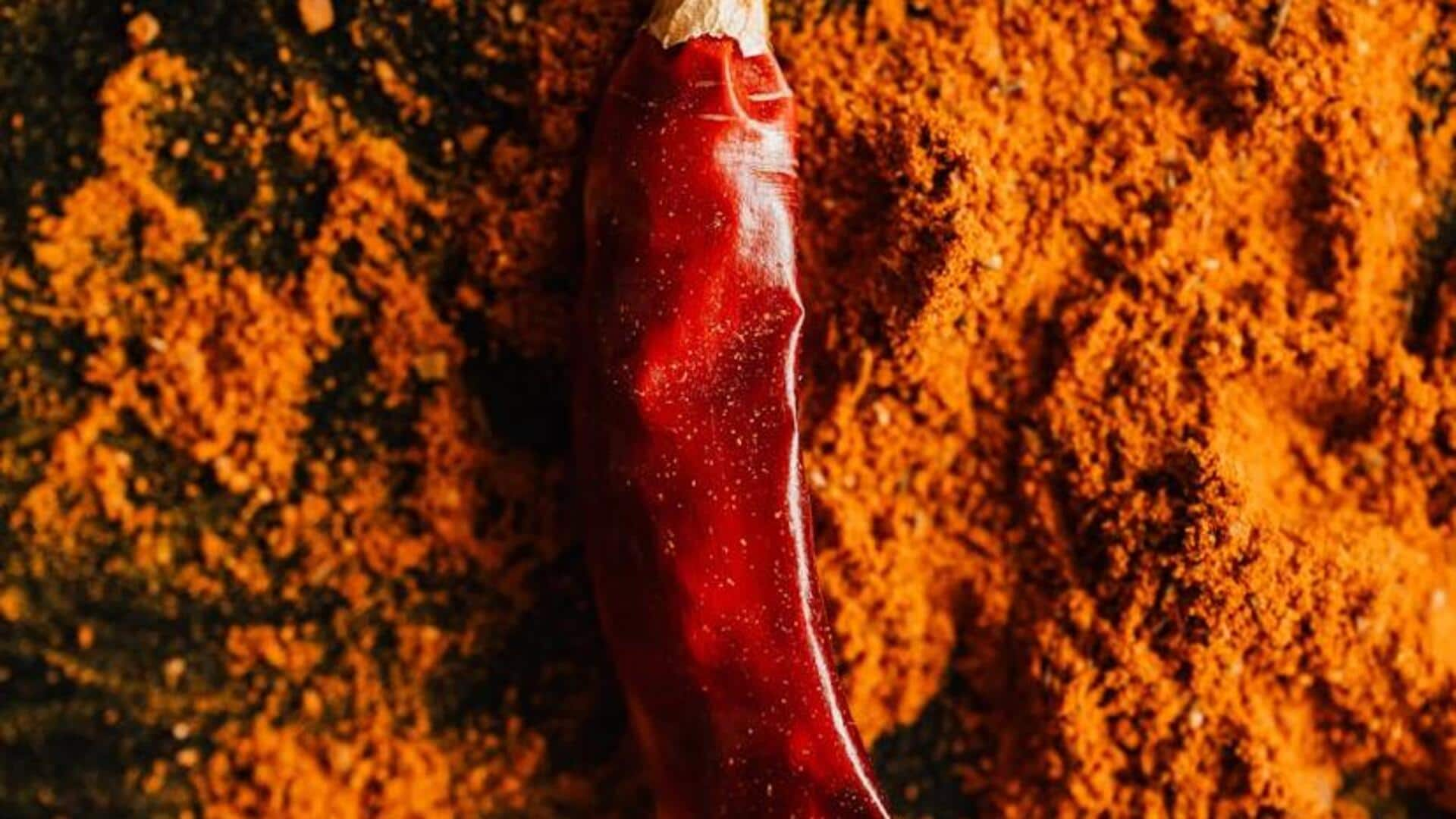
Paprika's skin health enhancements illuminated
What's the story
Paprika, the ground spice that is made from dried red fruits of the sweeter varieties of the plant Capsicum annuum, is not just a gastronomic delight, it's a secret ingredient for glowing skin. Brimming with antioxidants, vitamins, and minerals, this vibrant spice is a powerhouse for skin health. This article explores how adding paprika to your diet and skincare routine can provide a range of benefits for your skin.
Antioxidants
Antioxidant powerhouse for skin protection
Paprika is packed with powerful antioxidants, including beta-carotene, capsanthin, quercetin, and lutein. These compounds play a crucial role in protecting the skin from damage caused by harmful free radicals and UV rays. Regularly consuming paprika can help reduce the appearance of fine lines and wrinkles. This contributes to a more youthful complexion, making paprika a secret weapon for skin care.
Vitamins
Vitamin rich for enhanced skin health
Paprika is a powerhouse of vitamins A, E, and C. Vitamin A rejuvenates your skin by repairing damaged cells and maintaining healthy layers. Vitamin E locks in moisture and minimizes UV damage. Vitamin C boosts collagen production, ensuring your skin remains firm and elastic. So, add paprika to your diet for that glowing, healthy skin.
Anti-inflammatory
Anti-inflammatory properties for clear skin
Paprika, thanks to its anti-inflammatory properties, can drastically minimize swelling and redness associated with acne and other skin conditions such as psoriasis or eczema. By simply including paprika in your diet or applying it topically through skincare products, you can experience noticeably clearer skin. This spice's ability to calm inflammation makes it a natural remedy for attaining a smoother, more even complexion.
Brightening
Promotes brighter skin tone
The high beta-carotene content in paprika doesn't just shield you from the sun—it also seriously brightens up your complexion. It evens out your skin tone by fading dark spots and hyperpigmentation from sun damage or aging. If you're aiming for a more balanced complexion, adding paprika to your meals may be a good idea.
Healing
Supports wound healing
The high concentration of vitamin C in paprika makes it highly beneficial for wound healing. This is because vitamin C contributes to collagen production, a crucial component for the repair of damaged skin tissues. So, whether you're dealing with small cuts or trying to heal post-acne scars, incorporating this spice into your daily meals can speed up the healing process and promote healthier-looking skin over time.